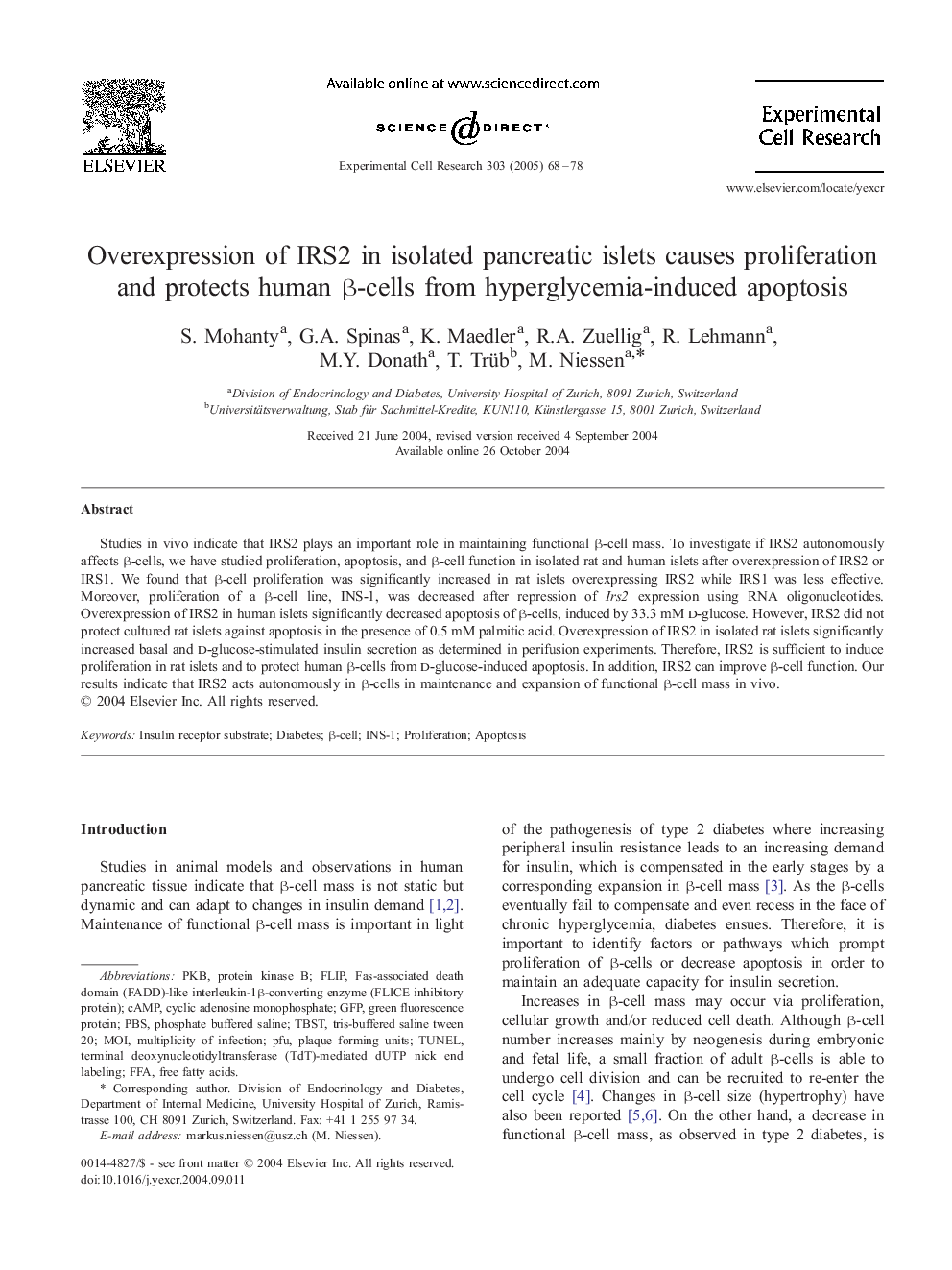| Article ID | Journal | Published Year | Pages | File Type |
|---|---|---|---|---|
| 10905092 | Experimental Cell Research | 2005 | 11 Pages |
Abstract
Studies in vivo indicate that IRS2 plays an important role in maintaining functional β-cell mass. To investigate if IRS2 autonomously affects β-cells, we have studied proliferation, apoptosis, and β-cell function in isolated rat and human islets after overexpression of IRS2 or IRS1. We found that β-cell proliferation was significantly increased in rat islets overexpressing IRS2 while IRS1 was less effective. Moreover, proliferation of a β-cell line, INS-1, was decreased after repression of Irs2 expression using RNA oligonucleotides. Overexpression of IRS2 in human islets significantly decreased apoptosis of β-cells, induced by 33.3 mM d-glucose. However, IRS2 did not protect cultured rat islets against apoptosis in the presence of 0.5 mM palmitic acid. Overexpression of IRS2 in isolated rat islets significantly increased basal and d-glucose-stimulated insulin secretion as determined in perifusion experiments. Therefore, IRS2 is sufficient to induce proliferation in rat islets and to protect human β-cells from d-glucose-induced apoptosis. In addition, IRS2 can improve β-cell function. Our results indicate that IRS2 acts autonomously in β-cells in maintenance and expansion of functional β-cell mass in vivo.
Keywords
Related Topics
Life Sciences
Biochemistry, Genetics and Molecular Biology
Cancer Research
Authors
S. Mohanty, G.A. Spinas, K. Maedler, R.A. Zuellig, R. Lehmann, M.Y. Donath, T. Trüb, M. Niessen,
